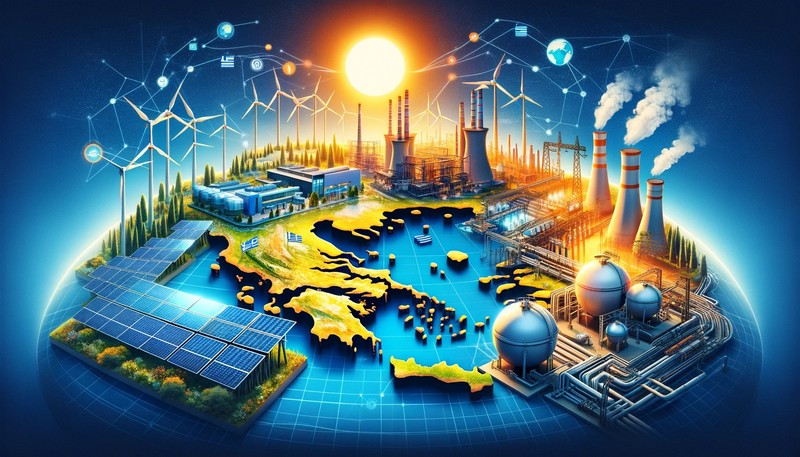Electricity market in Greece
Overview of Greece's energy sources
Greece's energy sector has undergone significant changes over the years. The country's energy mix primarily comprises renewable sources, natural gas, and lignite. Renewable energy, especially wind and solar power, has been steadily rising in contribution.

Lignite, a type of coal, historically has been a dominant source of electricity in Greece. However, its contribution to the energy mix is decreasing due to environmental concerns and the country's commitment to reducing carbon emissions.
Renewable Energy Expansion
In recent years, Greece has focused on expanding its renewable energy capabilities. Solar energy, owing to the country's abundant sunshine, plays a significant role in this expansion. Wind energy is also a significant contributor, leveraging the windy conditions prevalent in certain regions.
The government's commitment to renewable energy is reflected in various initiatives and investments aimed at increasing the share of renewables in the overall energy mix. This shift is part of Greece's strategy to ensure a sustainable and environmentally friendly energy future.
Natural Gas and Energy Security
Natural gas is another crucial component of Greece's energy portfolio. The country has made significant investments in natural gas infrastructure, including pipelines and liquefied natural gas (LNG) terminals.
This focus on natural gas aligns with Greece's broader strategy to enhance energy security and diversify energy sources. It also reflects a regional trend, as many European countries increasingly turn to natural gas as a cleaner alternative to coal and oil.
Integration into the EU Electricity Market
Greece is an active participant in the European Union's integrated electricity market. This involvement signifies a commitment to the EU's energy policies, which emphasize sustainability, competition, and cross-border energy trade.
The country's electricity grid is interconnected with neighboring countries, facilitating energy exchange and enhancing grid stability. These connections not only bolster Greece's energy security but also contribute to the broader goals of the EU's energy union.
Future of Energy in Greece
Looking ahead, Greece's energy sector is poised for further transformation. The country is committed to increasing the share of renewable energy in its mix, aligning with EU directives and global sustainability goals.
Investments in energy efficiency, smart grid technology, and energy storage are also part of this future vision. These initiatives aim to modernize the energy infrastructure, reduce dependency on imported fuels, and foster a more sustainable and resilient energy system.
